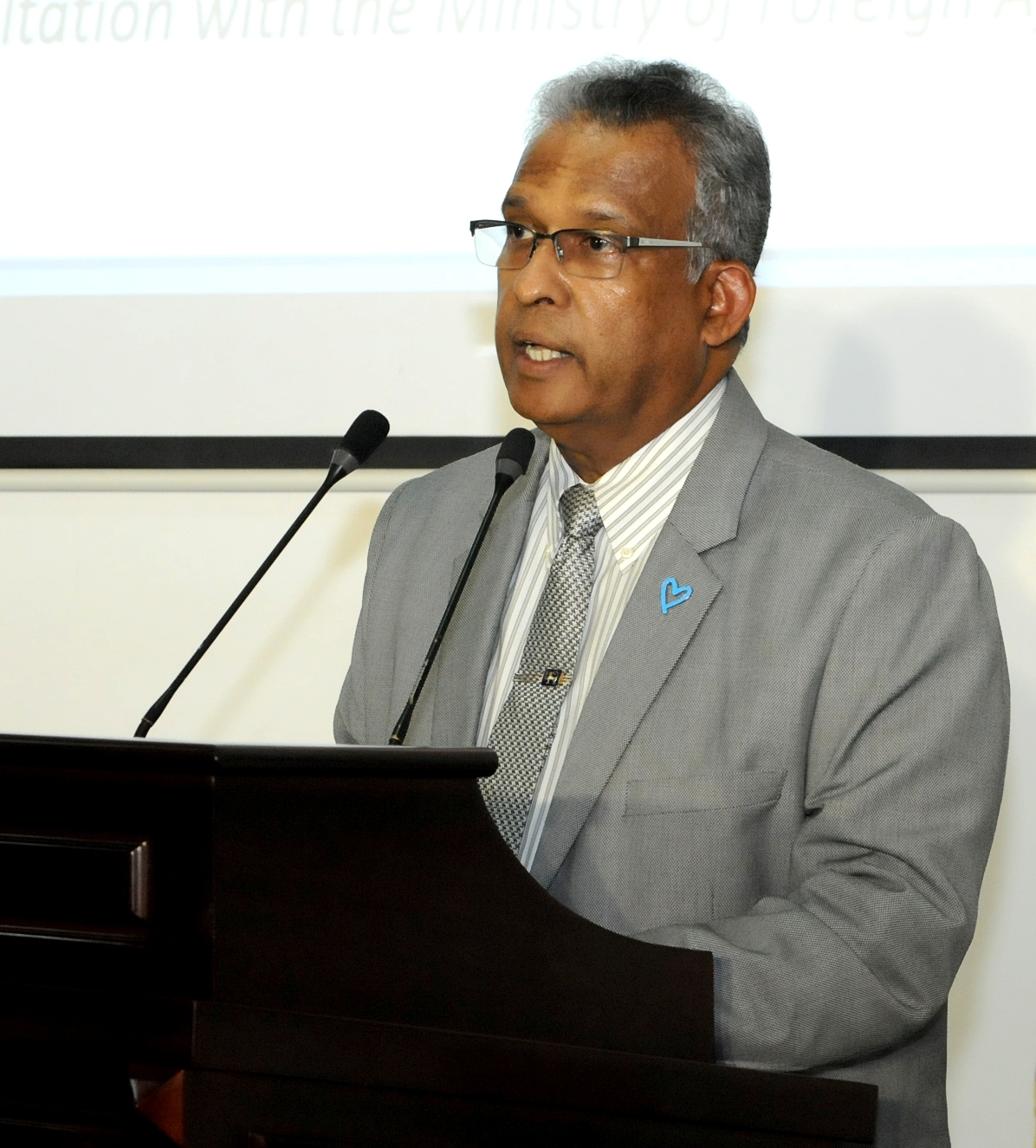
Representatives of the Media,
Ladies and Gentlemen,
“Trafficking in Persons” or what is commonly called “Human Trafficking” takes varied forms, and is linked to modern day slavery.
In our daily lives, many of us, including media personnel represented here, may not realize the gravity and scale of Human Trafficking and its associated ills in the world, or its real impact on societies. In fact, it is a scar on our sense of common humanity. It is an injustice to human beings. It endangers people’s health; and it is linked to organized crime and many criminal activities.
If I try to describe through a few very basic examples,
- the woman or girl that is persuaded with the promise of a certain job, and thereafter her documents are taken away, and she is forced to work for endless hours in a place where she wasn’t expecting to work;
- trafficking is present in the construction sectors where workers are abused and deceived; and
- in the sex industry where women and young girls are held in debt bondage.
Trafficking also takes place within a country, and within our own country too. Trafficking does not necessarily require the crossing of an international border. It can involve movement between cities or towns, or just a couple of streets.
It involves either forcing a person to travel, or deceiving a person into taking a journey under false promises of jobs, payment, or safety at the end of a journey.
Trafficking uses threat, force, coercion, or deception against a person for the purpose of exploitation. A person who is being trafficked can be exploited at the final destination and/or during the journey.
Ladies and Gentlemen,
One of the first steps in stopping trafficking lies in the ability of being able to spot trafficking and incidents of trafficking.
Today, therefore, is an important day for the Ministry of Foreign Affairs.
With the generous support of the Government of Australia, and assistance of the International Organization of Migration, we are launching an online e-learning training module on Combating Trafficking in Persons.
This e-leaning module will be accessible to all officers in Sri Lanka’s Embassies, High Commissions, and Consulates overseas. This will be available to all officers from different departments who are in our Missions
- Foreign Service Officers from the Ministry of Foreign Affairs;
-Labour Officers from the Sri Lanka Bureau of Foreign Employment;
-Security Forces Personnel and Police Personnel;
-Officers from different Services like the Management Service; and
-Officers appointed on Contract.
This module has been designed to assist officers stationed overseas to be properly equipped to identify, assist and protect victims of human trafficking. It is our hope that this training module will help them acquire the basic skills to respond effectively and with sensitivity when they encounter potential victims of trafficking.
I will not go into detail about the Training Module because there will be a demonstration video that will be shown to you about it. There will also be three speakers from Sri Lanka’s Missions overseas who will speak about the training in this area that has already been carried out. And the speakers that follow will explain things in greater detail including Sri Lanka’s efforts at combating and preventing Human Trafficking.
Ladies and Gentlemen,
Trafficking is not something that affects Sri Lankans alone. It affects all human beings, everywhere, in every country. Therefore, “Partnerships” are vital for combating trafficking. This is why Sri Lanka seeks to work with our partners in the international community including bilateral partners as well as international organisations to deal effectively with this scourge.
I thank IOM and the Government of Australia for their support for this important initiative, and for partnering with us for several years now on various efforts to combat trafficking in persons. I want to also use this opportunity to reaffirm the commitment of the Ministry of Foreign Affairs to work with all our partners both local and international, to take all possible steps to combat Trafficking in Persons.
Lastly, I think that, as individual citizens, all of us have a responsibility to take action to prevent and stop human trafficking. We must all try to learn more about Human Trafficking and its sources and forms, and think about what each one of us can do in our own way to stop and prevent trafficking.
As you would realize, Trafficking in Persons is a crime that feeds on inequalities, and instability. Traffickers make a profit from the hopes and despair of people. They prey on the most vulnerable and they rob people of their fundamental rights. The most vulnerable are women and girls. But men and boys are trafficked as well. I want to use this opportunity therefore, to make the point that this issue is something that all individuals must be more concerned about. And we must all take responsibility in our own way to stop and prevent this scourge.
Thank you




